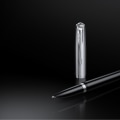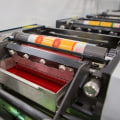Metal products are an essential part of many businesses and industries. From automotive to aerospace, metal products are utilized in a wide range of applications. But what do you need to know about these products before you make the investment? This article will provide an overview of the basics of metal products, from the types of materials available to the most common uses and costs associated with them. Read on to learn more about metal products and how they can benefit your business.
Metal products
are an essential component in a wide variety of industries and applications.They come in many forms and can be used for a wide range of purposes. Common types of metal products include aluminum, steel, and other metals. Each type of metal offers its own advantages and disadvantages. Casting is one of the most common processes used to create metal products.
It involves pouring liquid metal into a mold, and then allowing it to cool and solidify. Stamping is another common process used to shape metal products. It involves using a press or die to form the metal into the desired shape. Welding is the process of joining two pieces of metal together using either heat or electricity.
Metal products are used in a variety of industries, such as construction, automotive, and aerospace. In construction, metal products are often used for structural components, roofing, and siding. In automotive applications, metal products are used for everything from engine parts to body panels. In aerospace applications, metal products are used for aircraft frames, landing gear, and other components.
Metal products can also be customized to meet specific needs. For example, aluminum can be extruded into complex shapes and given special coatings for additional protection. Steel can be heat treated to increase strength and durability. Special alloys can also be created to give metal products unique properties.
It is important to use high-quality metal products for any application. Poorly made metal products are more likely to fail or cause problems down the line. Quality is often determined by analyzing the material’s composition, surface finish, and overall construction. The cost of metal products depends on a variety of factors, such as the type of metal, complexity of the design, and quantity needed.
It is important to consider all of these factors when deciding which type of metal product is best for each project. Metal products are an essential part of many industries and applications. They come in a variety of forms and can be used for an array of purposes. This article will explore the different types of metal products available, their advantages and disadvantages, and how they are beneficial in various industries.
The most common types of metals used for manufacturing products include aluminum, steel, copper, brass, and titanium. Aluminum is lightweight, corrosion resistant, and cost effective, making it a popular choice for many applications. Steel is strong, durable, and relatively inexpensive. Copper is malleable and highly conductive, while brass is known for its strength and malleability.
Titanium is extremely lightweight and strong, but more expensive than other metals. There are various processes involved in creating metal products. Casting is a process that involves melting metal into a liquid form and pouring it into a mold to create a desired shape. Stamping uses dies to shape metal parts into specific forms.
Welding fuses two pieces of metal together at high temperatures. Lastly, machining involves cutting metal with precision tools to create intricate shapes. Metal products are beneficial in a number of industries. In construction, metal products such as steel beams provide strength and support to structures.
Automotive parts are often made from aluminum or steel to ensure durability. Aerospace components need to be lightweight yet strong, making titanium or aluminum a good choice. Metal products can also be used for decorative purposes, such as in jewelry making. Examples of metal products used in various industries include bolts, nuts, screws, hinges, pipes, rods, wire mesh, sheet metal, rivets, and fasteners.
These products can be customized to meet specific needs such as size, shape, or finish. It is important to choose high-quality metal products for any application to ensure safety and reliability. The cost of metal products depends on the type of metal used and the complexity of the design. It is important to consider the cost of materials as well as labor when determining the best option for a project. In some cases, it may be more cost effective to use a different material or process if it meets the requirements.
Processes Involved in Creating Metal Products
Casting is a process of shaping metal products through the pouring of liquid metal into molds.This method is used to create objects that can be difficult to produce through other methods. The casting process can also be used to form intricate shapes that would otherwise require a great deal of time and effort to produce.
Stamping
is a process that involves the use of dies and presses to shape metal into a desired product. This process is often used for creating complex and intricate shapes with precision.It is also used for producing large quantities of parts quickly and efficiently.
Welding
is a process of fusing two or more pieces of metal together through the application of heat, pressure, and/or other forms of energy. This method is often used for joining two pieces of metal together and forming a strong bond. It is also used in the creation of metal products that require a strong bond between two or more pieces.Costs of Metal Products
Metal products can vary greatly in cost, depending on the type of metal used, the complexity of the design, and any additional finishing required. It is important to consider all of these factors when budgeting for a metal product. Many companies offer an online cost calculator to help determine the total cost of a particular product, which can help to make the process easier. The cost of raw materials is one of the primary factors that will affect the overall cost of the product.Different metals have different prices, so it is important to compare the costs of the different types of metal available. Additionally, certain metals may require additional treatments or finishing processes, which will add to the cost. In terms of design complexity, more intricate designs will usually be more expensive than simpler designs. This is due to the additional time and resources needed to create them.
The size and scale of the product also affects the cost, as larger items require more raw material and require more time and effort to construct. Finally, additional features such as coating or painting may need to be applied for certain products, and these can add to the total cost. In some cases, it may be possible to find a company that offers discounts for bulk orders or other special offers. Overall, it is important to consider all of these factors when determining the cost of a particular metal product. By taking into account all of these costs, it is possible to find a solution that meets both quality and budget requirements.
Benefits of Using Metal Products
Metal products offer a wide range of benefits in various industries, from construction to automotive and aerospace. These products are strong, durable, and able to withstand a range of temperatures.They are also lightweight, making them easier to transport and install than heavier materials. Metal products can also be more cost-effective than other materials, as they require less maintenance and are easy to recycle. In the construction industry, metal products can be used for framing, roofing, and siding. They provide superior strength and durability, which helps ensure the safety of the building and its occupants.
Metal products can also be used in automotive applications such as engine blocks, exhaust systems, and brake components. In the aerospace industry, metal products are used for structural components such as fuselages and wings. Metal products can also be used in a variety of consumer applications, such as jewelry, coins, and kitchenware. In addition to their strength and durability, metal products are also corrosion-resistant and can last for many years with minimal maintenance.
Metal products are also recyclable, making them an environmentally friendly choice.
Types of Metal Products
Metal products come in a variety of forms and can be used for many different purposes. The most common types of metal products are aluminum, steel, and other metals. Each type has its own advantages and disadvantages that should be considered when selecting the right metal product for a particular application.Aluminum
Aluminum is one of the most common metal products available. It is lightweight, corrosion-resistant, and durable.It is also relatively inexpensive and can be formed into a wide variety of shapes. Aluminum is often used in construction, automotive, and aerospace applications.
Steel
Steel is one of the strongest metals available and is often used in structural applications. It is also relatively inexpensive and easy to form into a variety of shapes. However, steel is more prone to corrosion than aluminum and can be difficult to work with if not properly treated.Other Metals
There are many other types of metals available, such as brass, copper, titanium, and stainless steel.Each of these metals has its own unique properties and advantages that make them suitable for different applications. For example, brass is often used for decorative purposes due to its attractive appearance, while titanium is known for its strength and durability.
Choosing Quality Metal Products
When selecting metal products for any application, it is important to choose high-quality materials that will be durable and reliable. Quality metal products should be made from the highest grade of metals available, such as stainless steel, aluminum, and other alloys. These materials should also be properly treated to ensure they are corrosion-resistant and able to withstand extreme temperatures and harsh environments.Additionally, quality metal products should have a smooth finish and be free from any defects. It is also essential to consider the intended application of the metal product when choosing the right type. Different types of metals can be better suited for specific applications, such as aluminum being a better choice for heat transfer applications than steel. Additionally, some metals may be more suitable for certain industries, such as copper being commonly used in electrical applications. Finally, it is important to consider the manufacturing process of the metal product when selecting quality materials.
Reputable manufacturers should adhere to stringent quality standards and use advanced methods and processes to ensure the highest grade of metal products. It is also beneficial to purchase from a manufacturer who offers a warranty or guarantee on their products.
Costs of Metal Products
When it comes to metal products, the cost is an important factor to consider. Many industries rely on metal products for various purposes, so understanding the costs associated with them is essential. The cost of metal products can vary depending on the type of product and the material used.For example, stainless steel is typically more expensive than aluminum or copper. Additionally, different shapes and sizes of metal products will have different costs as well. When determining the cost of metal products, it is important to consider the quality and durability of the product. Quality products are often more expensive, but they can last longer and provide better performance. Additionally, it is important to consider the weight and size of the product, as these can affect shipping and handling costs. It is also important to research and compare prices from different suppliers before making a purchase.
This can help you find the best price for your needs. Finally, it is important to consider the production cost of metal products. This includes the cost of raw materials, labor, and other associated expenses. Understanding these costs can help you make an informed decision about which product is best for your project.
Processes Involved in Creating Metal Products
Casting is a process used to create metal products from molten metals. It involves pouring the molten metal into a mold, which is then cooled and solidified in order to form the desired shape.This process is often used to create complex shapes and parts that would be impossible to produce using other manufacturing techniques. Stamping is another process used to create metal products. It involves using pressure and dies to shape the metal into a desired shape. This process is often used to produce parts such as brackets, spacers, clips, and small components.
Welding is the third process used to create metal products. It involves joining two pieces of metal together by heating them until they melt and become one piece. This process can be used to join pieces of different metals together or to repair damaged parts.
Choosing Quality Metal Products
When selecting metal products for any project, the quality of the product should always be taken into consideration. Quality metal products will be more durable, provide better performance, and last longer than lower quality products.Additionally, purchasing higher quality metal products can help to reduce costs in the long run by reducing the need for frequent repairs or replacements. When selecting metal products, it is important to look for certain features that indicate high quality. The material used should be of a higher grade, with a higher tensile strength and greater corrosion resistance. Additionally, the product should be designed in a way that allows for maximum efficiency and optimal performance. It is also important to choose metal products that are manufactured according to the highest safety standards. When choosing metal products, it is also important to consider the cost of the product.
Quality metal products may cost more initially, but they can save money in the long run by reducing maintenance and repair costs. It is also important to consider the environmental impact of the product when selecting metal products. Choosing high-quality materials that can be recycled or reused can help to reduce waste and increase sustainability. In summary, choosing quality metal products is essential for any application. When selecting metal products, it is important to look for certain features that indicate high quality, such as higher grade materials, optimal design, and adherence to safety standards.
Additionally, it is important to consider the cost and environmental impact of the product when selecting metal products.
Customizing Metal Products
Metal products can be customized to meet specific needs and requirements. Depending on the application, metal products can be made from various materials, such as aluminum, steel, and copper, and can be produced in a variety of shapes and sizes. Customized metal products can also include additional features such as coatings and finishes to enhance their performance in different environments. In order to create custom metal products, manufacturers often use a combination of cutting and machining processes. For example, laser cutting is a popular method used to create intricate shapes and patterns out of metal sheets.Computer numerical control (CNC) machining is another process that is used to cut metal parts to exact specifications. Once the metal parts have been cut to the desired shape and size, additional processes such as welding, grinding, sanding, and finishing can be used to customize the product further. The cost of customizing metal products depends on many factors, including the complexity of the design and the type of material used. For example, more complex designs may require more time and effort to achieve the desired result, which can increase costs significantly. Additionally, more expensive materials may be needed to create the best quality product. Customizing metal products can provide numerous benefits for businesses.
By creating unique designs and shapes, metal products can improve functionality while also increasing aesthetic appeal. Additionally, customizing metal products can help businesses reduce manufacturing costs by eliminating the need for multiple parts or components.
Customizing Metal Products
Metal products can be customized to meet a variety of specific needs. Whether you need a single part or a complex system, custom metal products can be designed to meet your exact requirements. For example, custom metal products can be used to create parts for machinery or other equipment.They can also be used to create custom tools and fixtures for industrial applications. In addition, custom-made metal products can be used in architectural and construction projects. The process of customizing metal products involves the use of specialized manufacturing processes. These processes can include laser cutting, welding, machining, grinding, forming, finishing, and other techniques.
By combining these processes, metal products can be created that are tailored to meet the specific needs of a given project. The cost of customizing metal products depends on the complexity of the design and the materials used. Generally speaking, the cost of customizing metal products increases with the complexity of the design. In addition to cost considerations, customizing metal products also requires careful consideration of the application and environment in which they will be used. For example, some metal products may need to be corrosion resistant, while others may need to withstand extreme temperatures or other harsh conditions.
When selecting metal products for your project, it is important to consider the benefits that customizing them offers. By customizing metal products, you can create a unique product that meets your exact specifications while still providing the benefits of a standard product.
Benefits of Using Metal Products
Metal products are an invaluable asset for many industries due to their strength, durability, and versatility. In the construction industry, metal products are often used in the form of beams, girders, and support structures. In the automotive industry, metal products are used for engine parts, suspension components, and body panels.In the aerospace industry, metal products are used for propeller blades, wing spars, and fuel tanks. The use of metal products offers many advantages over other materials. The strength of metal makes it ideal for use in applications that require high levels of durability. It is also resistant to corrosion and is able to withstand extreme temperatures.
Additionally, metal is relatively easy to shape and form into complex shapes when compared to other materials. This makes it ideal for a wide range of applications. The versatility of metal products is also valuable. For instance, it can be used to create highly detailed parts and components that are necessary for a variety of industries. This includes components such as screws, bolts, and rivets that are commonly used in construction and automotive applications.
Metal can also be used to create aesthetic components, such as decorative ornaments and sculptures. In addition to its strength and versatility, metal is also cost-effective. This makes it an attractive option for many industries due to its low cost and relatively long lifespan. It is also recyclable, meaning it can be reused or repurposed after its initial use has been completed. Overall, metal products have a wide range of benefits for many different industries. From construction to aerospace, metal products can offer strength, durability, and versatility at an affordable cost. This article has covered everything you need to know about metal products, including what they are, the types available, the processes involved in creating them, the benefits of using them, and how to customize and choose quality metal products.
Metal products can be beneficial in many industries and are often customizable to meet specific needs. It is important to consider costs when making a decision, as metal products can vary in price depending on the quality and the processes used. With this knowledge, you can make an informed decision about which metal product is best for your application.











